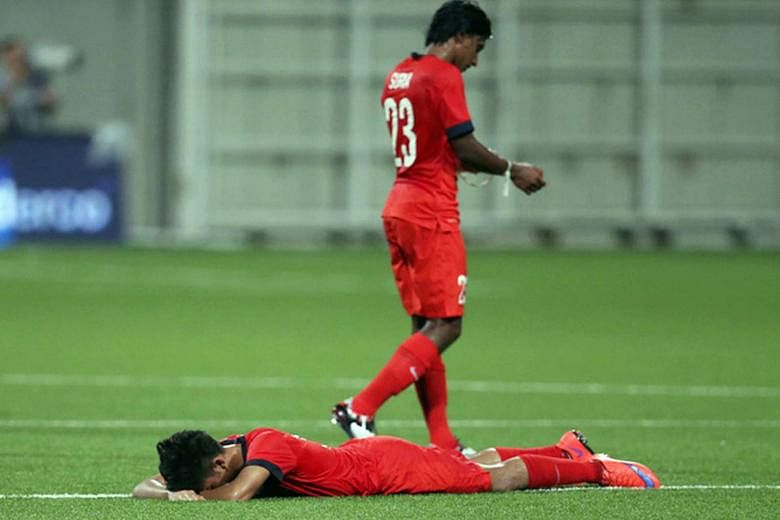Finally, after nearly two months, following almost two hours of closed-door deliberations, the much-awaited report on Singapore's failed SEA Games football campaign was released yesterday.
The Football Association of Singapore executive committee, led by president Zainudin Nordin, had met on Tuesday to discuss the shambolic group-stage exit.
But the media were told there would be no press conference. Not even a statement on the day of the meeting as the FAS needed more time to issue its findings. Hence it would only issue one the next day.
So it was with bated breath that journalists eagerly awaited the report.
Just what led to the embarrassing exit? Was it a case of bad coaching and poor tactics? Perhaps it was down to a young team unable to handle the pressure of delivering at home?
Or was it, as SEA Games coach Aide Iskandar revealed, down to preventable problems within the FAS that contributed to the Young Lions of 2015 becoming the first Singapore team to bow out in the group stage of a home Games last month.
Yet, in a 10-paragraph statement that came at 8.49pm last night - more than 26 hours after the exco had ended its meeting - answers sought about the SEA Games debacle remained largely unanswered.
Just what went wrong?
All the FAS would let on was that "it was largely down to the application", with hints that it involved team management and tactical decisions, preparation, rest and training schedules and communication.
It was vague as vague could be.
Here was the biggest SEA Games football disaster Singapore had seen on home soil. One which prompted fans at the stadium to turn on the players and coach, one which hundreds took to social media to question the team, the coach and the FAS management, calling for heads to roll. It eventually led to Aide's resignation.
With tensions running so high, some humility in the statement would have been nice. There was hardly any.
An apology would have gone some way to soothing the anger. There was none.
The statement was however clear on one point - that the campaign "received extremely strong support".
How strong?
The statement, keeping true to its nature, did not say. But one can guess that much of it came from the reported $3.5 million of largely government funding devoted to football.
Given the hefty expense, one would have assumed that more accountability and transparency into how it was a failed investment would have been deemed necessary. Yet the powers that be at the Jalan Besar Stadium thought otherwise.
Instead, what the nation is left with after the biggest failure of the 2015 Singapore SEA Games is a commitment to review procedures, a promise to get stronger and a public chiding of "key staff (who) have taken to the press to engage in a public spat".
Guess the FAS does not share Sport Singapore's chief executive Lim Teck Yin's sentiment that the silver lining to emerge from the football fiasco was that "the coaches are now speaking up", in reference to Aide's opening up about what went wrong at the Games.
It seems as if the FAS wants the SEA Games disaster to disappear quickly, and quietly. In some ways, it may have just achieved that yesterday.
The 2015 debacle may now not be remembered for the poor results, the resignation of a coach, the embarrassment at home and reports of in-fighting.
It may now be remembered for the report that raised more questions that it gave answers to.


